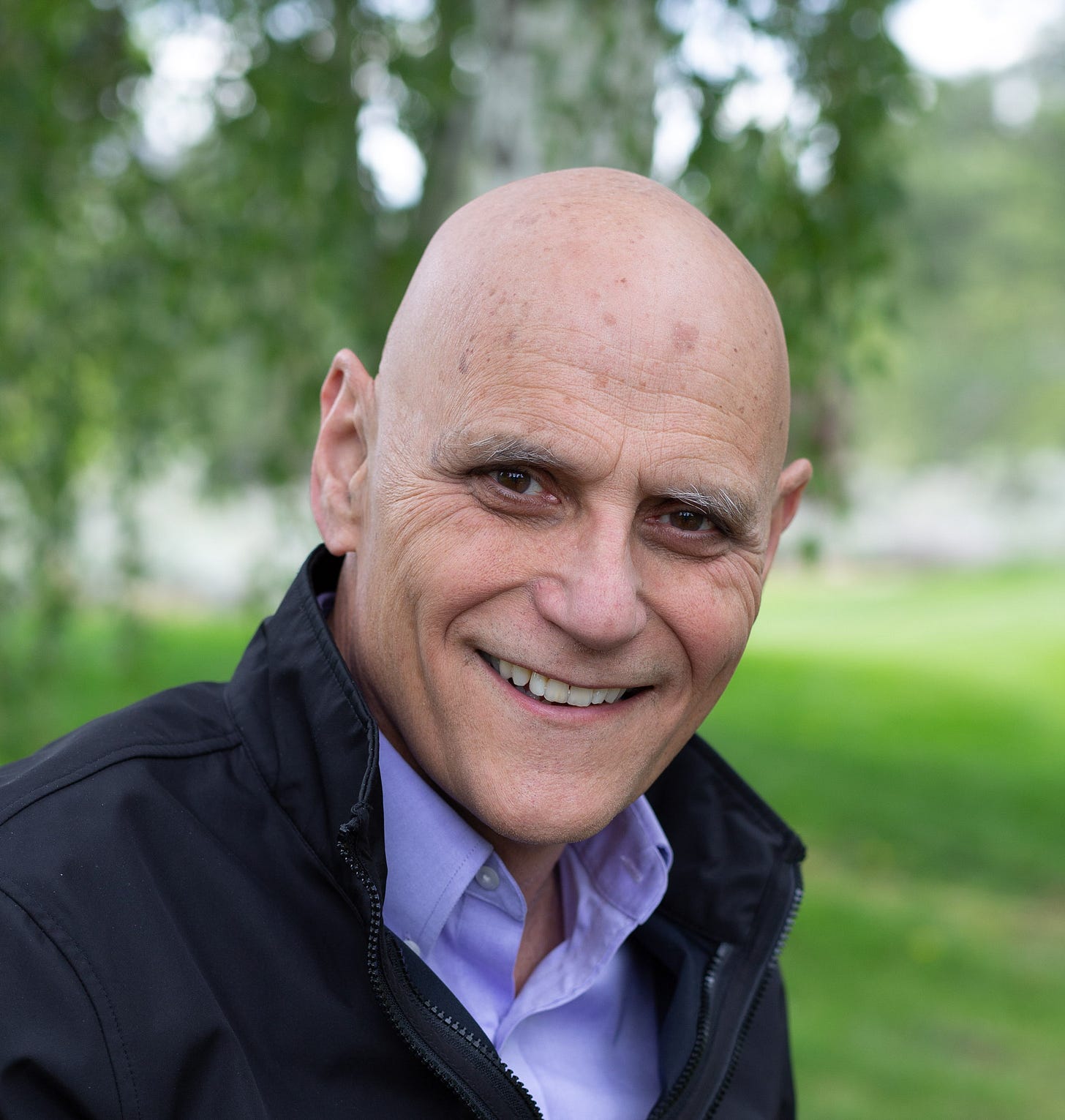15 Words to Change Your Life
Dr. Stephen C. Hayes shares the secret to a liberated mind and how psychological flexibility can help support mindful drinking.

I drank to feel better. As I described in my book, Mindful Mixology: A Comprehensive Guide to No- and Low-Alcohol Cocktails, alcohol was a means of escape for me:
Being drunk, I could live in a fantasy world and didn't have to consider the repercussions of my actions or the low-idling engine of anxiety anymore. I was living in that drunken moment, free of concern, even if that moment was wobbly, blurry, and soon forgotten.
But quitting drinking alone wasn’t going to help me. I needed, as Dr. Stephen C. Hayes, describes in our recent conversation on The Mindful Drinking Podcast, to “face the dinosaur.”
That meant borrowing some wisdom from within and learning from what Hayes calls, “40 years of trying to hack the human mind and do the smallest set of things that do the most good.”
Hayes is the founder of Acceptance and Commitment Therapy (ACT), author of 48 books, and one of the most cited psychologists in the world. In conversation, Hayes speaks in a soft, gravely voice that easily gives way to emotion. His openness and directness of speaking conveys a kind of care you wouldn’t expect from a scholar of his magnitude.
According to Hayes, “We come into the world yearning to feel.” But, instead of trying to feel better, we need to feel better and face our pain. Too often we try to run away from it––hide, diminish, dampen down, or avoid it.

Hayes knows about running away. When he was a child, Hayes would have frequent nightmares about being chased by a dinosaur. Every time the dinosaur came after him, he’d run away.
One night, he had a lucid dream and decided––instead of running away––to run toward the dinosaur and jump in its mouth. To his surprise, he woke up. He did it again and again until the dinosaur didn’t want to play anymore.
Later in life, Hayes developed a panic disorder that got progressively worse despite the many things he tried. (And, as a psychologist, he had plenty of tools at hand.)
After three years, he didn’t feel like there was any way out until one night he thought he was having a heart attack, which was actually a panic attack mirroring the symptoms of a heart attack––severe chest pain and pain shooting down his arm.
He wanted to call an ambulance but, instead, he decided to face the true cause of his pain and, after doing so, made a promise: “Never again; I will not run from me.”
Hayes believes there’s a lot of wisdom to learn from understanding our pain: such as when someone you love dies. It can be a flashlight and show us a deeper side of our experience. We feel loss exactly because we want love. However, our mind will often try to solve the problem by eliminating the value––in this case love––that made the thing painful in the first place.
According to Hayes, “We’re trying to treat our life as a problem to be solved instead of a process to be lived.” It’s our brain’s fault. He likens the brain’s approach as trying to solve ourselves as a math problem instead of a sunset.
The true secret, he says, is to be “open, aware, engaged in a life worth living, taking care of your relationships and body.” Those 15 words are the distillation of his studies of psychological change. It means developing psychological flexibility and, to do so, we have to look within at our own values.
Hayes says, “Values are… your gut sense of what brings vitality and meaning to you in your life, it’s why you look up to your heroes, it’s why you say ‘Oh, this is such a sweet moment,’ it’s what’s on the other side of the painful things that happen.”
“Values are like the lighthouse in the distance,” according to Hayes, “You can walk toward them and perhaps you’ll never reach them, but you can be [closer] today than you were yesterday.”
And, to drive it home, Hayes has a simple exercise that can prove it to you within two minutes:
Pick a guide who powerfully lifted you up in your life whom you actually know: a parent, teacher, sibling, coach, etc.
Did you feel like that they were present with you? Could you see a human being when your eyes met?
And were their opportunities that showed up in the moment or was it one way or the highway? Or is it more flexible?
When you were with this person, did you feel judged or criticized?
Did the things you care about matter to that person or did they ask you to do something that would violate something you care about?
Did you feel deeply accepted for who you are as a person? Did you somehow feel like you’re OK in the eyes of that person?
“You’ve got wisdom within,” says Hayes, “That guide isn’t physically here with you, they’re in your head… but you can put those things you gravitate towards as values in your life.”
Gravitating toward my own values and gaining some measure of psychological flexibility has allowed me the space to face alcohol on my terms instead of as a means of escape. That has allowed me to drink mindfully and make better choices about alcohol in my life.
To learn more about Dr. Steven C. Hayes and ACT, check out his website where he offers a free mini course and, of course, read A Liberated Mind: How to Pivot Toward What Matters.
Lastly, listen to our conversation on my podcast, The Mindful Drinking Podcast:
Derek Brown is an author, award-winning bartender, NASM-certified wellness coach, and founder of Positive Damage, Inc.
This newsletter is free and public. Share with anyone you think will enjoy it.




